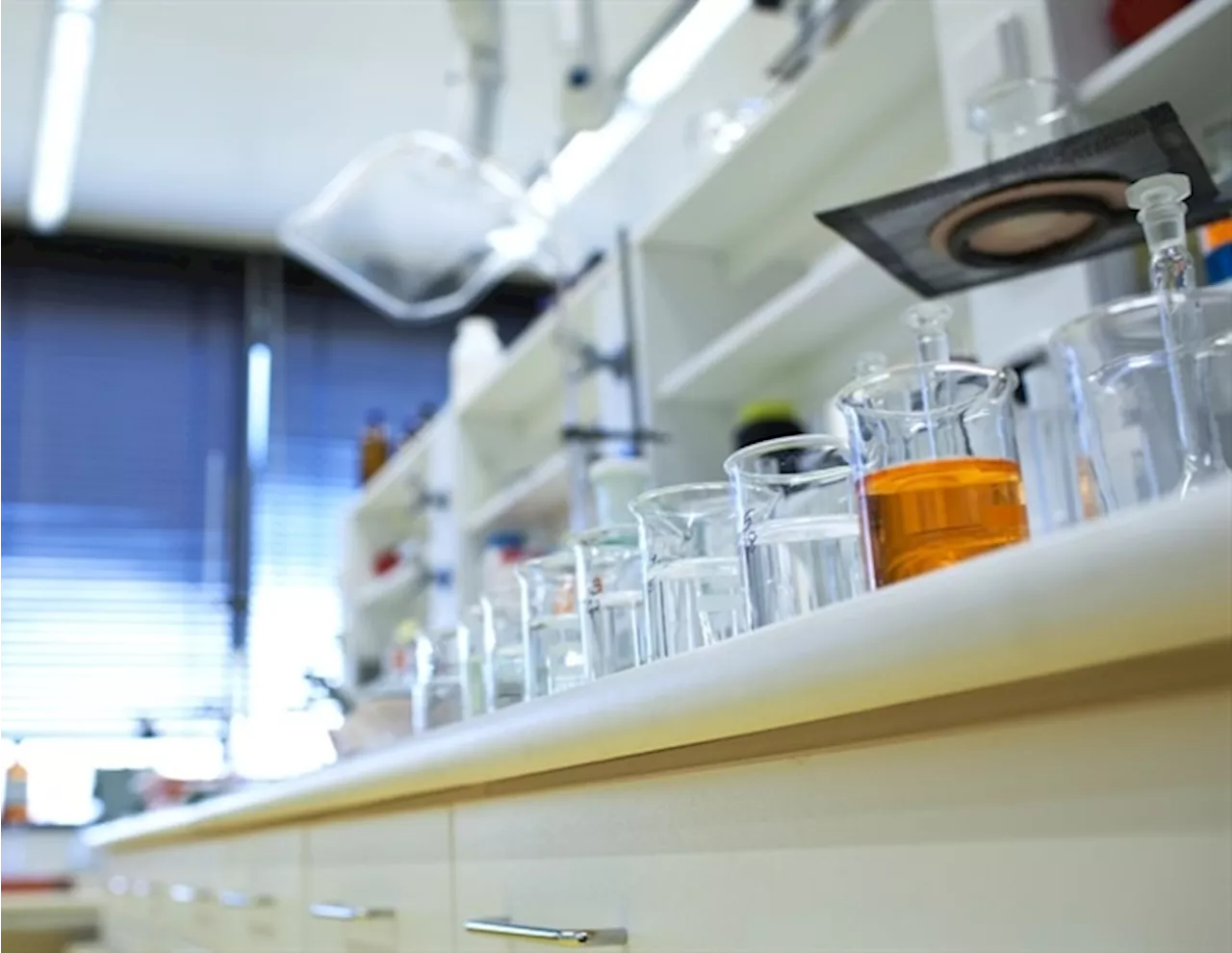A new study published in Nature reveals that a gene common in some bat species can significantly reduce the replication of the SARS-CoV-2 virus, offering potential avenues for developing new antiviral therapies. The Ray Laboratory at Texas Tech University played a key role in the research, analyzing bat genome sequences to identify the unique genetic adaptations that contribute to bats' remarkable resistance to viral infections.
Five years after the COVID-19 pandemic emerged, scientists worldwide continue to investigate its long-term effects and explore strategies to mitigate future outbreaks. An international research team has identified a potential breakthrough, with a laboratory at Texas Tech University playing a crucial role.
The Ray Laboratory, led by David Ray, Professor and Associate Chair in the Department of Biological Sciences, contributed to a study published in the prestigious journal Nature focusing on bat genomes. This research revealed that a gene prevalent in certain bat species exhibits a remarkable ability to reduce the replication of the SARS-CoV-2 virus by up to 90%. This discovery could pave the way for novel medical approaches to combat viral diseases.Professor Ray highlighted the extraordinary resilience of bats against viral infections. 'Bats have an amazing ability to resist some of the worst effects of viral infection that make us so vulnerable to certain diseases,' he explained. 'While we get very sick, the bats barely blink an eye when exposed to the same pathogens.' His laboratory played a key role in annotating the bat genome assemblies. Genome annotation involves identifying and characterizing all components of the genome, including genes, regulatory sequences, and coding and non-coding regions. The Texas Tech team specifically focused on identifying transposable element (TE) regions within the assemblies. These regions contain DNA segments capable of creating new copies of themselves and introducing variations within the genome. Professor Ray emphasized that bats possess a unique TE repertoire among mammals, which may contribute to their resistance against pathogens like the coronavirus. 'TEs are a great way for organisms to generate genetic diversity in the species, allowing some individuals to survive better in the face of environmental pressures like viral diseases,' he stated. This research is part of a larger international initiative called Bat1K, aimed at sequencing and assembling the genomes of all living bat species (approximately 1,500). Led by the Senckenberg Research Institute and Natural History Museum in Frankfurt, Germany, the project involves prominent researchers like Michael Hiller, Professor of Comparative Genomics at Goethe University and a member of the Senckenberg Institute. Dr. Hiller and Professor Ray both serve on the executive board of the Bat1K consortium, facilitating collaboration between the Ray Laboratory and the international scientific community. The Ray Laboratory has a strong track record in genome research, encompassing bats, other mammals, crocodiles, and various insects. Past collaborations have involved organizations such as the National Science Foundation, the U.S. Department of Agriculture, the state of Texas, and the Texas Department of Wildlife and Fisheries.The study's focus on the ISG15 gene, linked to severe COVID-19 progression in humans, yielded particularly significant results. Bats, known to harbor numerous viruses transmissible to humans, exhibit no symptoms of disease upon infection. The study demonstrated that the ISG15 gene from bats effectively reduces the production of the SARS-CoV-2 virus by 80-90%, while the human ISG15 gene showed no antiviral effects. The ISG15 gene is likely one of several factors contributing to bats' resistance to viral diseases. These promising findings provide a foundation for further experimental investigations to unravel the intricate adaptations of the bat immune system
BAT GENOMES VIRAL DISEASES IMMUNE SYSTEM SARS-COV-2 TEXAS TECH UNIVERSITY RAY LABORATORY NATURE JOURNAL BAT1K PROJECT
United Kingdom Latest News, United Kingdom Headlines
Similar News:You can also read news stories similar to this one that we have collected from other news sources.
 Wind Tunnel Research Helps Understand Wildfire SpreadScientists at Worcester Polytechnic Institute are using a large wind tunnel to study how wildfires spread, hoping to develop strategies to limit damage caused by these increasingly frequent and intense blazes.
Wind Tunnel Research Helps Understand Wildfire SpreadScientists at Worcester Polytechnic Institute are using a large wind tunnel to study how wildfires spread, hoping to develop strategies to limit damage caused by these increasingly frequent and intense blazes.
Read more »
 OpenAI Unveils Deep Research: ChatGPT Takes on Research Analyst RoleOpenAI's new Deep Research feature allows ChatGPT to delve deeper into web research, generating comprehensive reports comparable to human analysts.
OpenAI Unveils Deep Research: ChatGPT Takes on Research Analyst RoleOpenAI's new Deep Research feature allows ChatGPT to delve deeper into web research, generating comprehensive reports comparable to human analysts.
Read more »
 Tech in 2025: Trump and the tech brosWhat will the Trump presidency mean for the tech world?
Tech in 2025: Trump and the tech brosWhat will the Trump presidency mean for the tech world?
Read more »
 Platform Study: Accelerating Research for New Depression Treatments in EuropeA new large-scale, Europe-wide platform study called PEARLDIVER aims to accelerate the development and testing of new treatments for depression. This innovative approach will allow researchers to simultaneously evaluate multiple treatment options, potentially leading to faster identification of effective therapies.
Platform Study: Accelerating Research for New Depression Treatments in EuropeA new large-scale, Europe-wide platform study called PEARLDIVER aims to accelerate the development and testing of new treatments for depression. This innovative approach will allow researchers to simultaneously evaluate multiple treatment options, potentially leading to faster identification of effective therapies.
Read more »
 Study reveals dangerous mutations in H5N1 bird fluOne of the earliest strains of bird flu isolated from a human in Texas shows a unique constellation of mutations that enable it to more easily replicate in human cells and cause more severe disease in mice compared to a strain found in dairy cattle, researchers from Texas Biomedical Research Institute (Texas Biomed) report in Emerging Microbes &...
Study reveals dangerous mutations in H5N1 bird fluOne of the earliest strains of bird flu isolated from a human in Texas shows a unique constellation of mutations that enable it to more easily replicate in human cells and cause more severe disease in mice compared to a strain found in dairy cattle, researchers from Texas Biomedical Research Institute (Texas Biomed) report in Emerging Microbes &...
Read more »
 Britons Express Low Trust in Big Tech, Citing Concerns Over Impact and MisinformationNew data from the Office for National Statistics reveals that nearly half of Britons have low trust in big tech firms, with 1 in 8 expressing no trust at all. The poll also highlights generational and gender differences in perceptions of tech's influence, with younger adults and men more likely to see it as beneficial. While the public sees potential for big tech in healthcare and education, concerns about its impact on defense and transport remain. The survey comes amidst growing friction between tech giants and the government, fueled by recent incidents involving online misinformation and violent content.
Britons Express Low Trust in Big Tech, Citing Concerns Over Impact and MisinformationNew data from the Office for National Statistics reveals that nearly half of Britons have low trust in big tech firms, with 1 in 8 expressing no trust at all. The poll also highlights generational and gender differences in perceptions of tech's influence, with younger adults and men more likely to see it as beneficial. While the public sees potential for big tech in healthcare and education, concerns about its impact on defense and transport remain. The survey comes amidst growing friction between tech giants and the government, fueled by recent incidents involving online misinformation and violent content.
Read more »
